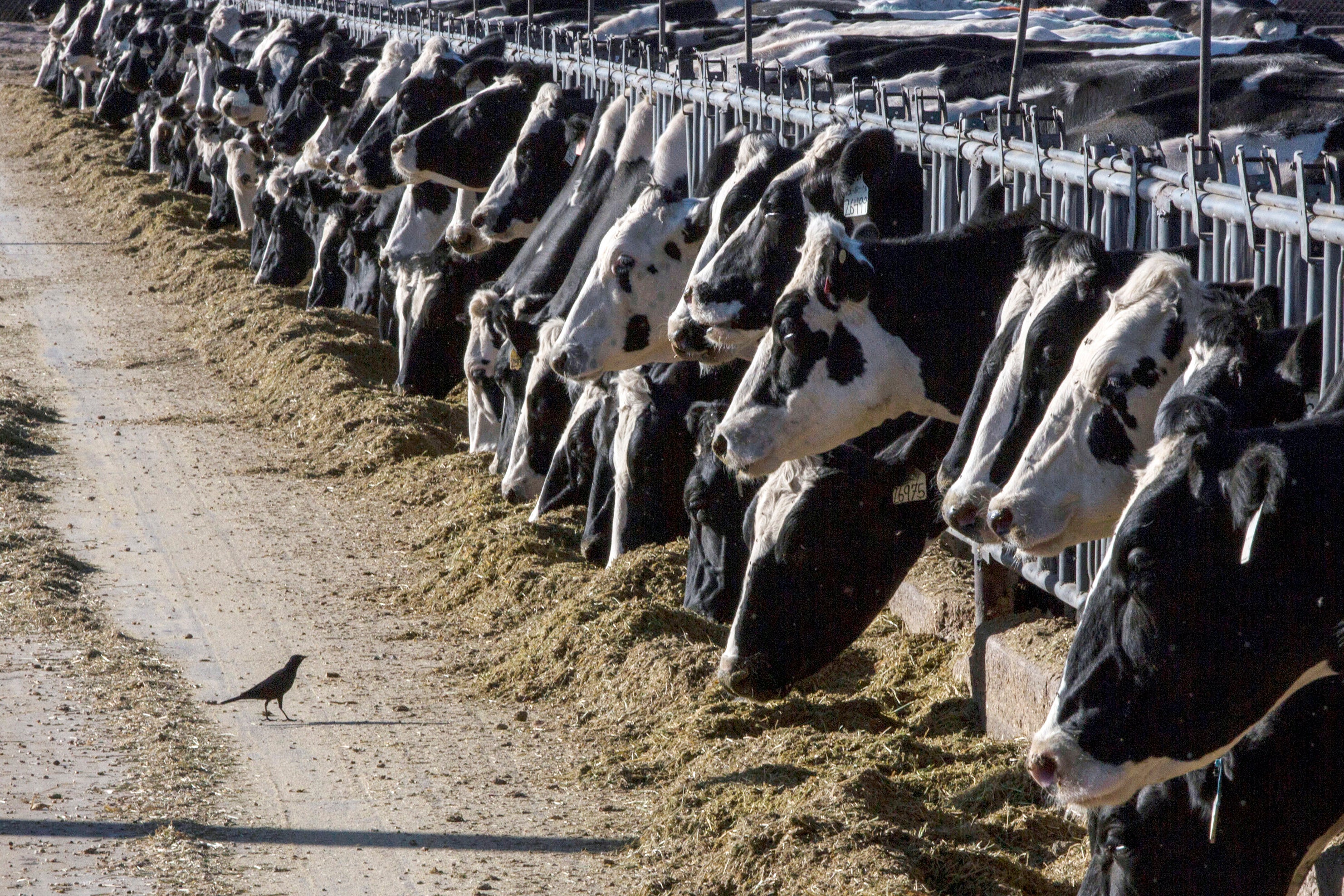Dairy cattle in Texas and Kansas have tested positive for bird flu
Federal officials say that milk from dairy cows in Texas and Kansas has tested positive for bird flu

Your support helps us to tell the story
From reproductive rights to climate change to Big Tech, The Independent is on the ground when the story is developing. Whether it's investigating the financials of Elon Musk's pro-Trump PAC or producing our latest documentary, 'The A Word', which shines a light on the American women fighting for reproductive rights, we know how important it is to parse out the facts from the messaging.
At such a critical moment in US history, we need reporters on the ground. Your donation allows us to keep sending journalists to speak to both sides of the story.
The Independent is trusted by Americans across the entire political spectrum. And unlike many other quality news outlets, we choose not to lock Americans out of our reporting and analysis with paywalls. We believe quality journalism should be available to everyone, paid for by those who can afford it.
Your support makes all the difference.Milk from dairy cows in Texas and Kansas has tested positive for bird flu, U.S. officials said Monday.
The illness has been reported in older dairy cows in those states and in New Mexico. The symptoms included decreased lactation and low appetite.
It comes a week after officials in Minnesota announced that goats on a farm where there had been an outbreak of bird flu among poultry were diagnosed with the virus. It's believed to be the first time bird flu — also known as highly pathogenic avian influenza — was found in U.S. livestock.
The commercial milk supply is safe, according to the U.S. Department of Agriculture. Dairies are required to only allow milk from healthy animals to enter the food supply, and milk from the sick animals is being diverted or destroyed. Pasteurization also kills viruses and other bacteria, and the process is required for milk sold through interstate commerce, they said.
“At this stage, there is no concern about the safety of the commercial milk supply or that this circumstance poses a risk to consumer health,” the USDA said in a statement.
Experts say livestock will recover on their own. That's different than bird flu outbreaks in poultry, which necessitate killing flocks to get rid of the virus. Since 2022, outbreaks in have led to the loss of about 80 million birds in U.S. commercial flocks.
Based on findings from Texas, officials think the cows got the virus from infected wild birds, the USDA said.
So far, the virus appears to be infecting about 10% of lactating dairy cows in the affected herds, said Michael Payne, a food animal veterinarian and and biosecurity expert with the University of California-Davis Western Institute for Food Safety and Security.
“This doesn’t look anything like the high-path influenza in bird flocks,” he said.
The federal government also said that testing did not detect any changes to the virus that would make it spread more easily to people.
Bird flu was detected in unpasteurized, clinical samples of milk from sick cattle collected from two dairy farms in Kansas and one in Texas. The virus was also found in a nose and throat swab from another dairy in Texas. Symptoms including decreased lactation and low appetite. Officials also reported a detection in New Mexico.
Officials called it a rapidly evolving situation. The Food and Drug Administration and Centers for Disease Control and Prevention are also involved, along with officials in the three states. Another dairy-heavy state, Iowa, said it is monitoring the situation.
Dairy industry officials said that producers have begun enhanced biosecurity efforts on U.S. farms, including limiting the amount of traffic into and out of properties and restricting visits to employees and essential personnel.
Bird flu previously has been reported in 48 different animal species, Payne noted, adding: “It was probably only a matter of time before avian influenza made its way to ruminants.”
___
The Associated Press Health and Science Department receives support from the Howard Hughes Medical Institute’s Science and Educational Media Group. The AP is solely responsible for all content.